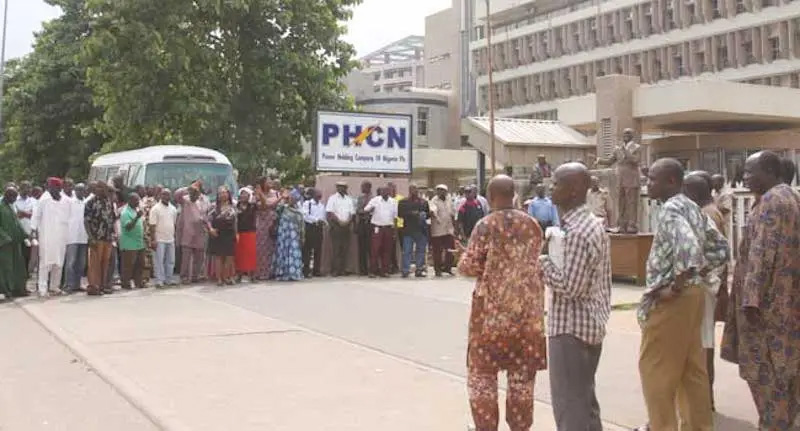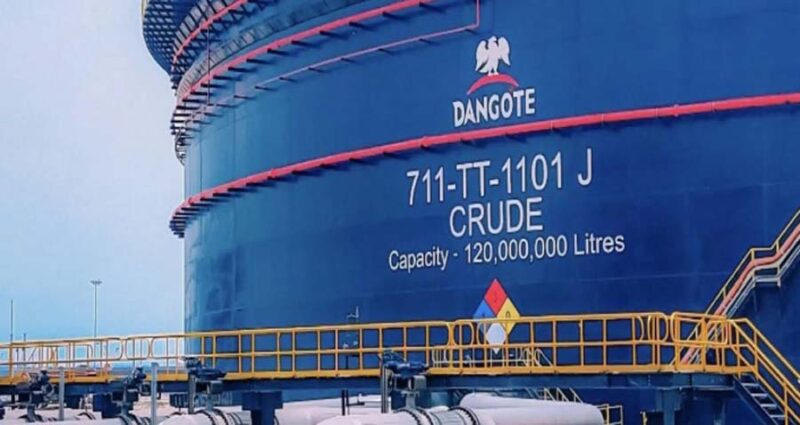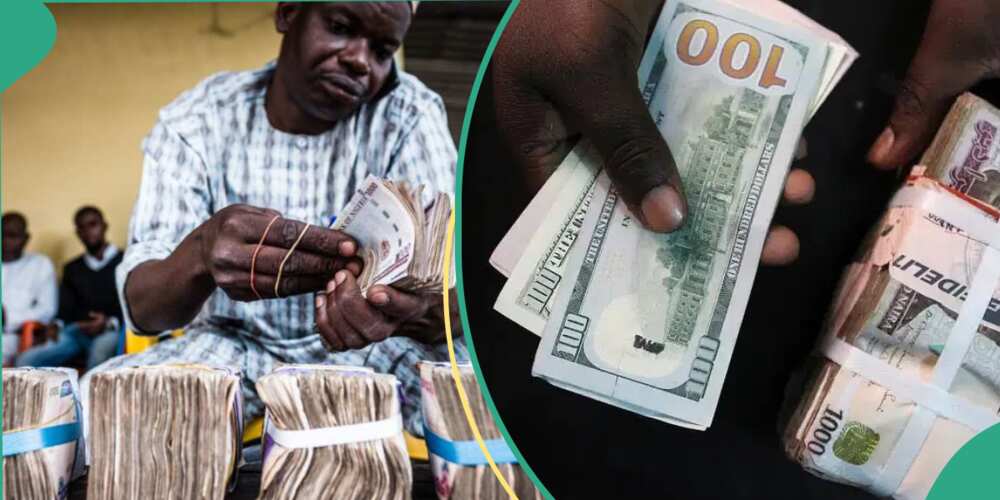Business
Despite FG’s Plea, Electricity Workers Cripple Power Supply in Abuja, Environs

Despite a federal government statement pleading with the National Union of Electricity Employees (NUEE) not to embark on an industrial action, the workers yesterday made good their threat, crippling power supply in parts of Abuja and environs.
The affected areas under the Abuja Electricity Distribution Company (AEDC) franchise included Abuja, Nasarawa, Kogi, parts of Edo, Niger and Kaduna states.
Specifically, the protesters attached to the AEDC said they were embarked on the industrial action over the non-payment of their entitlements for over 20 months.
The federal government at the weekend through the ministry of power had cautioned workers against the action, as a consequence of the impact of the ownership tussle in the Distribution Company (Disco).
Minister of State, Power, Mr Goddy Jedy-Agba, had urged members of the labour union to follow due process in airing their grievances, stressing that going contrary to established rules will run against extant laws which may have unintended consequences.
READ ALSO:
- Sylvester Oromoni: Femi Falana takes over case against Dowen College
- Nnamdi Kanu starving in DSS facility – Younger brother raises alarm
- ASUU hints of fresh strike from Wednesday
The minister had advised the union members to be, “cautious and responsible to avoid endangering the fragile state of our electricity infrastructure which the present government is working hard to strengthen.”
But in defiance, members of staff of the company who are demanding the payment of their 2020 bonus and other entitlements and remittance of pensions allegedly deducted by the company to their pension fund administrators, shut down some the of facilities belonging to the AEDC.
“Enough is Enough! Pay us our outstanding pension remittances, thrift/corporative deductions, 2020 productivity bonus, bulk rent and union check off bonus,” some of the banners in a number of the AEDC’s offices in Abuja read.
In its reaction, management of the Transmission Company of Nigeria (TCN) informed that though it had available bulk power for delivery to the distribution load centres of the AEDC to offtake for its customers, power evacuation from injection substations across the franchise area had been disrupted.
“TCN regrets this disruption and assures Nigerians that normal bulk power delivery to AEDC will be restored as soon as the injection substations are opened for onward electricity supply to consumers,” a statement by TCN’s General Manager, Public Affairs, Ndidi Mbah, stated.
READ ALSO:
- FG: We have enough COVID vaccines to cover 70% Nigerians
- Presidency: It’s too late to kneel and beg – Shettima replies Ezeife
- Dowen student’s death a slap on Lagos govt, says Sanwo-Olu’s wife
Also, a statement from the AEDC signed by its Public Affairs Manager, Oyebode Fadipe urged the distribution company’s customers to be calm as all the pending issues were being resolved.
“Following the industrial action embarked upon by the National Union of Electricity Employees, power supply to some of our areas of operation, especially those on the 11kV network, may be affected.
“We would like to assure all our customers that all hands are on deck to resolve the issues that prompted this action. We would also like to apologise to our customers for the inconvenience and disruption,” the Disco stated.
Thisday
Business
Govt paying N600bn for fuel subsidy monthly — Rainoil CEO

Govt paying N600bn for fuel subsidy monthly — Rainoil CEO
The CEO of Rainoil Limited, Gabriel Ogbechie, has claimed that the federal government resumed the payment of the controversial fuel subsidy following the devaluation of the Naira in the foreign exchange market.
Ogbechie made this statement on Tuesday during the Stanbic IBTC Energy and Infrastructure Breakfast Session held in Lagos.
He pointed out that with Nigeria’s daily fuel usage at 40 million liters and the foreign exchange rate at N1,300, the government’s subsidy per liter of fuel falls between N400 and N500, culminating in a monthly total of approximately N600 billion.
He said; “When Mr. President came in May last year, one of the things he said was that Subsidy is gone. And truly, the subsidy was gone, because immediately the price of fuel moved from 200 to 500 per liter. At that point truly, subsidy was gone.
“During that period, Dollar was exchanging for N460, but a few weeks later, the government devalued the exchange rate. And Dollar moved to about N750. At that point, subsidy was beginning to come back.
READ ALSO:
- North Central Support Group rejects Northern Elders, pledges allegiance to Asiwaju
- Gunmen kidnap 2 FRSC officers along Abakaliki-Enugu highway
- Driver killed, 16 passengers abducted on Abuja-Lokoja road
“The moment the two markets officially closed, officially the market went to about N1,300. At that point, that conversation was out of the window. Subsidy was fully back on petrol. If you want to know where petrol should be, just look at where diesel is. Diesel is about N1,300 and petrol is still selling for N600.
Furthermore, he said that NNPC being the only petrol importer in the country implies that there is an ongoing subsidy, as prices had to be fixed.
Earlier yesterday, the former governor of Kaduna State, Nasir El Rufai, said the federal government is spending more on petrol subsidy than before.
In addition, the Special Adviser to the President on Energy, Mrs. Olu Veŕheijen, said that the Federal Government reserves the right to pay fuel subsidy intermittently to cushion hardship in the country.
“The subsidy was removed on May 29. However, the government has the prerogative to maintain price stability to address social unrest. They reserve the right to intervene.
“If the government feels that it cannot continue to allow prices to fluctuate due to high inflation and exchange rates, the government reserves the right to intervene intermittently and that does not negate the fact that subsidy has been removed,” she said.
Govt paying N600bn for fuel subsidy monthly — Rainoil CEO
Business
Breaking: Dangote brings diesel price down to N1000/litre

Breaking: Dangote brings diesel price down to N1000/litre
Dangote Petroleum Refinery has announced a further reduction in the price of diesel.
When it commenced operation a few weeks ago, Dangote Petroleum Refinery pegged the price of diesel as N1,200.
While rolling out the products, the refinery supplied at a substantially reduced price of N1,200 per litre three weeks ago, representing over 30 percent reduction from the previous market price of about N1,600 per litre.
READ ALSO:
- Kano anti-corruption agency slams fresh charges against Ganduje
- Troops kill ISWAP Commanders, 30 other terrorists
- Ooni of Ife dismisses agitators of Yoruba nation
However, on Tuesday, a further reduction of N200 was noticed in the price, with the product now pegged at N1,000.
This significant reduction in the price of diesel, at Dangote Petroleum Refinery, is expected to positively affect all the spheres of the economy and ultimately reduce the high inflation rate in the country.
The President of Dangote Group, Aliko Dangote, had during the Eid-el-Fitr celebration said if the cost price of diesel comes down, the inflation rate will be substantially reduced.
Dangote spoke when he visited President Bola Tinubu in his residence in Lagos State to celebrate the end of the Ramadan fast with him.
Breaking: Dangote brings diesel price down to N1000/litre
Business
Naira records five-month highest gain, sells below N1000/$ at parallel market

Naira records five-month highest gain, sells below N1000/$ at parallel market
The naira continued its positive showing against the United States dollar on Monday, selling below N1000/$ in some segments of the parallel market.
Newstrends reports that the Federal Government, groups and some individuals have mounted a spirited campaign for those hoarding the dollars to push them out as naira continues to appreciate.
On Monday, the naira was offered in some parts of Lagos and Abuja between N995 and N1,050 per dollar in the parallel market. It was N1,230/$ on Friday.
The latest gain, being over five-month highs, came in the wake of the Iranian attack on Israel and a rise in the crude oil price.
Goldman Sachs, American investment bank economists, had earlier predicted that the naira’s bullish momentum on the foreign exchange market would likely cause it to trade for less than N1,000 per US dollar in the coming months.
According to a report by Nairametrics, the group claimed that the rally in Nigerian currency helped recover from large losses after two devaluations since last June by being bolstered by capital inflows and successive interest rate hikes.
In March, Goldman Sachs projected that the Naira would appreciate to N1,200 per dollar in 2024.
At the official foreign exchange market, the rate was put at N1,136/$ in contrast with N1,205/$ last Friday.
The top bank has implemented several policy initiatives in recent months to bring stability to the foreign exchange market.
The CBN increased interest rates to 24.75% at the most recent meeting of the Monetary Policy Committee (MPC), which helped it recover losses from the two devaluations that occurred since June of last year.
Further gains for the naira result from the CBN’s ongoing intervention, which involves selling foreign exchange to Bureau De Change operators at a revised rate.
The market anticipates higher inflows of US dollars from the sale of foreign currency bonds in the second quarter as disclosed by Finance Minister Wale Edun.
The Federal Government has just offered high-yield short-term debt products at a premium to entice overseas capital into the economy.
The Middle East’s geopolitical unrest and
Notwithstanding a drop in Nigeria’s production volume, crude oil prices have risen beyond $90.
Nigerian grades of oil are trading at a premium to the ICE Brent benchmark.
The Middle East’s geopolitical unrest and the anticipation of an Iranian government strike on Israel caused oil prices to soar.
-

 Sports6 days ago
Sports6 days agoKane’s three children involved in car crash, hospitalised
-

 Entertainment6 days ago
Entertainment6 days agoTolani Baj expresses love for Bobrisky
-

 metro5 days ago
metro5 days agoTroops neutralise 188 terrorists, rescue 133 hostages in assault operations
-

 News5 days ago
News5 days agoFG gives update on where fleeing Binance executive is hiding
-

 News6 days ago
News6 days agoNew electricity tariff may drop if naira rebounds further – Adelabu
-

 metro6 days ago
metro6 days agoBreaking: Bobrisky sentenced to six months imprisonment without option of fine
-

 Business6 days ago
Business6 days agoNaira continues gain, sold N1,150/$ at parallel market
-

 News5 days ago
News5 days agoI helped Emefiele to collect $3m cash – Dispatch rider






















